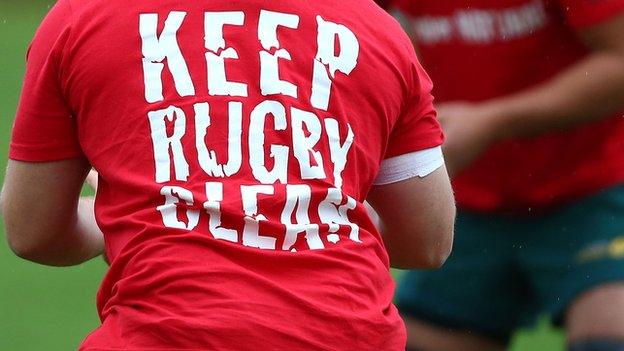State of Sport: Fifa's former doctor says painkiller use risks footballers' health
- Published

Elite footballers' "abuse" of legal painkillers risks their health and could "potentially" have life-threatening implications, says Fifa's former chief medical officer.
About half of players competing at the past three World Cups routinely took non-steroidal anti-inflammatory drugs like ibuprofen, claims Jiri Dvorak.
He says it is still an "alarming trend" among players, including teenagers.
"It has become a cultural issue, part of the game," said Professor Dvorak.
"It is absolutely wrong," added the Czech, who left Fifa in November after 22 years.
"For me it's clearly abuse of the drugs - that's why we use the word alarming."
However, the Professional Footballers' Association - the players' union in England - said misuse of painkillers was "not a major issue" among its members.
BBC pundit and former England defender Danny Mills says painkillers in football have always been widespread - "and always will be".
"I've been in many dressing rooms where I've seen other players pressured into playing with painkillers," he said.
Players are pressured to use painkillers - Mills
He added players at the top level of the game did not see them as an issue because they were legal and often monitored by health professionals - but he felt some players lower down the league ladder might suffer problems without that safety net in place.
Professor Dvorak spoke to the BBC as part of State of Sport week, which on Thursday examines the balance of athlete welfare against a winning-at-all-costs culture in sport.
A government-commissioned review into safety and wellbeing in British sport, headed by 11-time Paralympic champion Baroness Grey-Thompson, is due to be published imminently.
It is expected to recommend significant reforms designed to improve the way athletes are treated by governing bodies.
Professor Dvorak collected data about the intake of medication by all players at every Fifa tournament between 1998 and 2014, discovering almost 50% took 'everyday' anti-inflammatory drugs and painkillers that are available over the counter.
He says some clubs prioritise success over player welfare, leading to players feeling "pressured" into taking medication to overcome minor injuries and play in important games.
Professor Dvorak previously raised these concerns when he was employed by Fifa, but claims the world governing body has still not addressed the issue appropriately.
Fifa says its stance on the issue has not changed since Dvorak first warned about the long-term implications of players misusing painkillers, external in 2012.
The misuse of legal medication could "potentially" have life-threatening implications for players, claims Professor Dvorak.
"We have to make a strong statement for the players: wake up, and be careful," he said. "It is not that harmless and you can't think that you can take them like cookies. It has side-effects."
Not a major issue for us - PFA
Only one footballer based in England has raised concerns about the misuse of painkillers directly to the PFA in the past decade, according to head of player welfare Michael Bennett.
"It was an individual with a back problem and he was taking ibuprofen tablets to get through games and training with it," Bennett told BBC Sport.
"The issue arose more when he left the game, when he realised he was still taking them and it was a continual problem for him.
"He addressed the issue by going to see his personal GP and decreased the medication he was taking, and coming off it.
"In my time of working in this field, about eight or nine years, that is the only person who has had an issue with painkillers.
"It is not a major issue for us."

Professor Dvorak joined Fifa in 1994 before leaving last November
The footballer's view
BBC pundit Danny Mills made more than 320 appearances for sides including Manchester City and Leeds United in a 14-year career that ended at the age of 32 through injury. He saw painkillers as part and parcel of football and thinks players are unlikely to see them as an issue as a result.
When you're talking about painkilling injections, painkilling drugs, anti-inflammatories, it's widespread in football. Always has been, always will be. As a player the first thing you ask is, "Is it legal?" and if it is, fine. Is it going to help, is it going to get me through a game? If yes, then generally, without too many questions, without too much concern, you take what's being offered.
Most professionals are dictated to now by physios, by doctors, and things are monitored, so they do not see it as a huge issue.
I've been in many dressing rooms where I've seen other players pressured into playing with painkillers. Myself as well, I had pain-killing injections in a broken toe for six months - one before the game, one at half-time. I'd wake up at midnight screaming in agony as it wore off but it was my choice, I wanted to do it. Was it good for me long-term? Probably not.
But players will always look for the short-term fix. Most players would take the attitude, 'it's painkillers, it's legal, it's monitored'. There are times when it might not do the injury any good, there's a good chance you might make it worse but you take that risk. Sport is all about risk and reward. As long as there is that reward, people will always take risks. You're going to win a medal, you're going to get three points. Ultimately it has to be down to the individual to make up their mind. But would I do it again? Yes.
Case studies: 'My body could not cope'
Three former Premier League footballers have blamed the overuse of legal anti-inflammatory drugs and painkillers on health problems.
These include over-the-counter pills, such as ibuprofen and vitamins, as well as stronger pain-relief injections like cortisone.
Daniel Agger, former Liverpool and Denmark defender
Agger, 32, retired from competitive football when his contract expired at Brondby in June 2016.
Fifteen months earlier he collapsed in the dressing room after being substituted just 29 minutes into a game against FC Copenhagen.
He was an injury doubt and, in a desperate bid to play, had taken more than the recommended maximum dose of anti-inflammatory drugs in the week leading up to the game.
"The body could not cope with it," he told Danish newspaper Jyllands-Posten in July 2016.
"I have taken too many anti-inflammatories in my career.
"I know that full well, and it sucks, but I did stop it [in the end]. I am not gaining anything personally from saying this but I can only hope that other athletes do.
"It could be that others take a pill or two less."

Agger captained Denmark and made almost 200 league appearances for Liverpool
Ivan Klasnic, former Bolton Wanderers, Werder Bremen and Croatia striker
Klasnic, 37, suffered kidney failure while playing for German club Werder Bremen in 2007.
He blamed team doctors at Werder Bremen, saying they failed to diagnose his problem in time and continued to prescribe painkilling medication to him which can be very damaging to kidneys.
The doctors at the club say the problem was caused by genetics and not painkillers.
He was left critically ill in September after his body rejected a transplanted kidney provided by his mother.
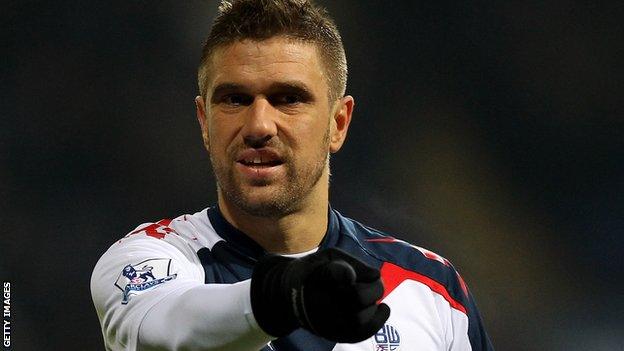
Klasnic played for Bremen between 2001 and 2008, going on to make 94 appearances for Bolton between 2009 and 2012
Dominic Matteo, former Liverpool, Leeds and Scotland defender
Matteo, 42, said he took painkilling injections "for years" during a career spanning more than 350 appearances, and had to have spinal surgery two years after he retired in 2009.
He added he thought under-pressure managers did not consider the long-term effect of players having this treatment and then taking part in games.
"I took painkilling injections to play football when my body was telling me to do otherwise," he said in a 2011 interview.
"Even though the operation was a success, I don't think I'll ever be completely fine but hopefully I'll be able to lift my kids again.
"This problem all dates back to when I was at Liverpool and I had injections to play games. Then, after Liverpool, when I was at Leeds nothing changed; I'd get an injection every Saturday just to play."
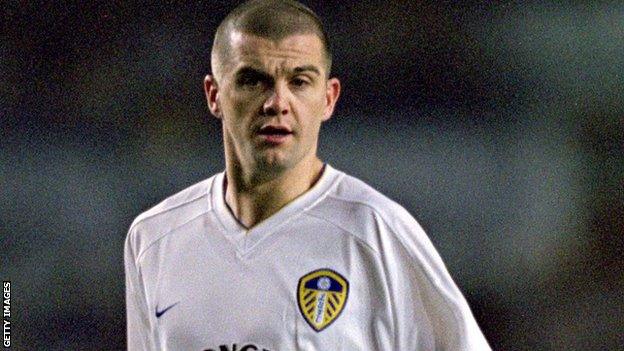
Matteo joined Leeds from boyhood club Liverpool in 2000, going on to help the Yorkshire club reach the Champions League semi-finals
'Pressure' led to cyclist taking powerful painkiller
Last week, British cyclist Josh Edmondson told the BBC he broke the sport's rules by secretly injecting himself with a cocktail of vitamins when riding for Team Sky.
The 24-year-old, who was on the team's books in 2013 and 2014, also said he had severe depression after independently using the controversial painkiller Tramadol.
Speaking to BBC sports editor Dan Roan, he said he risked giving himself a heart attack by self-administering the medication secretly at night.
"In 2014 I was under a lot of pressure, not just from the team but from myself," said Edmondson.
"You want to renew your contract for one thing, and for me the bigger thing was not letting anyone down - this team had given me a chance by signing me."
Wada chief Olivier Niggli explains why painkiller Tramadol is not banned
- Published20 March 2017

- Published20 March 2017

- Published26 January 2017
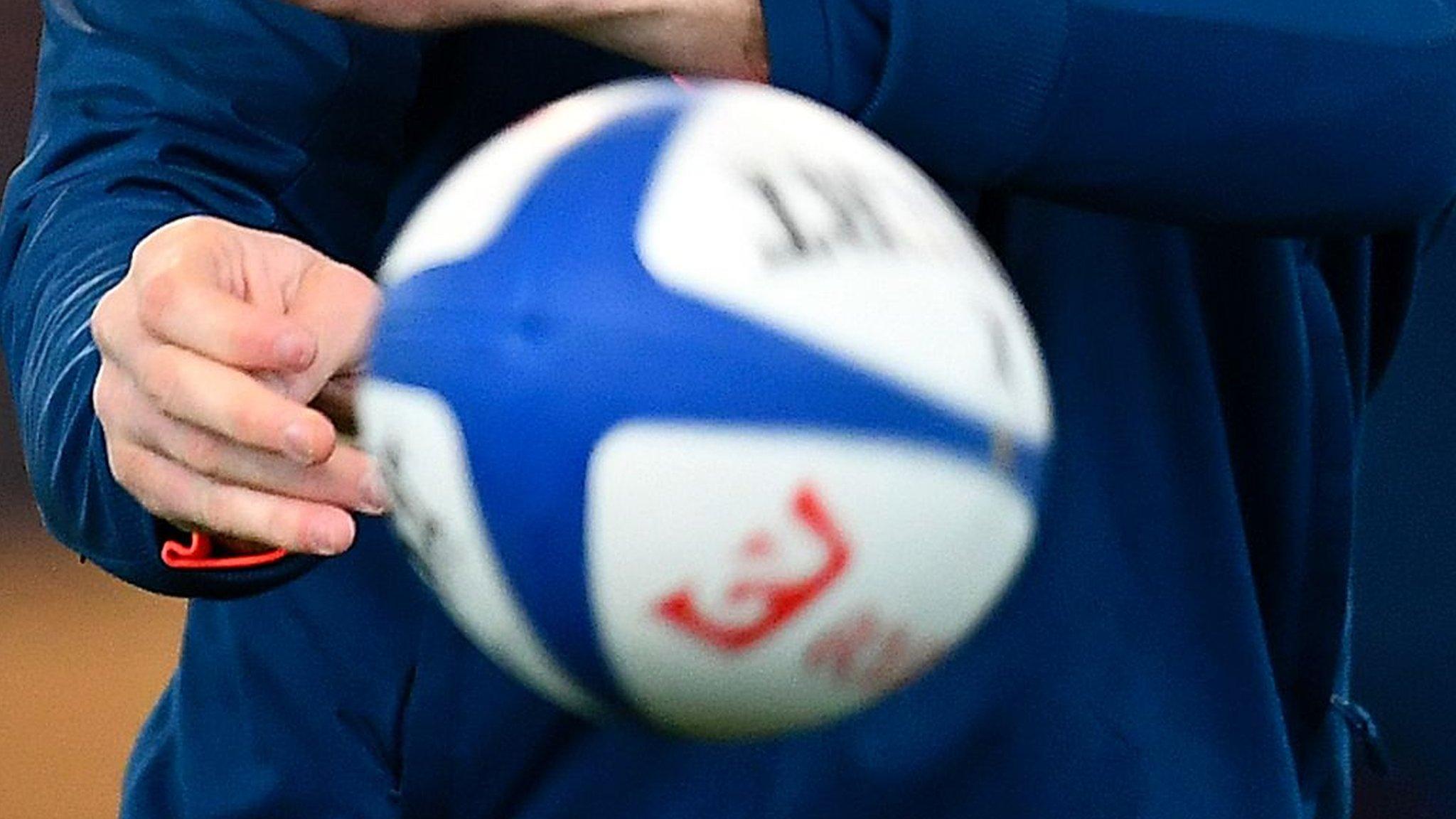
- Published10 March 2016
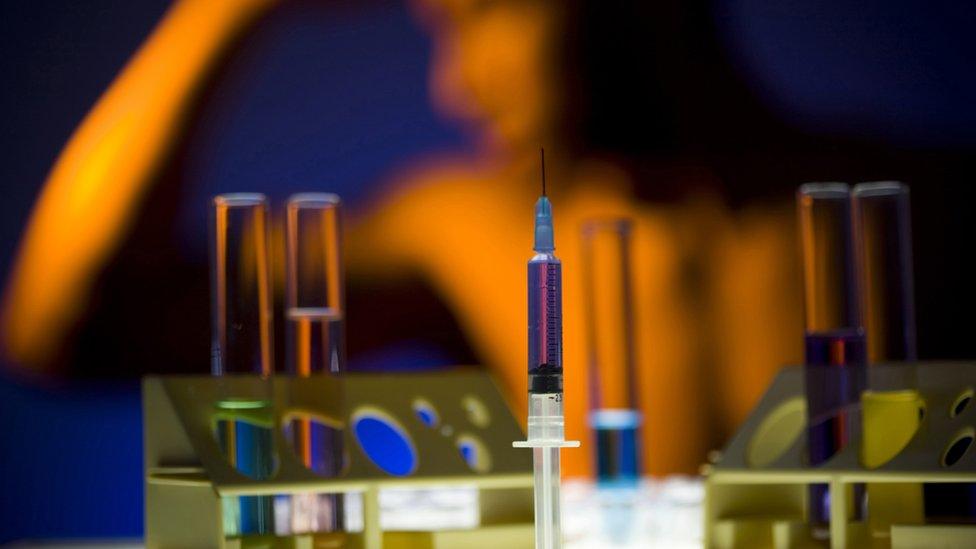
- Published9 April 2016
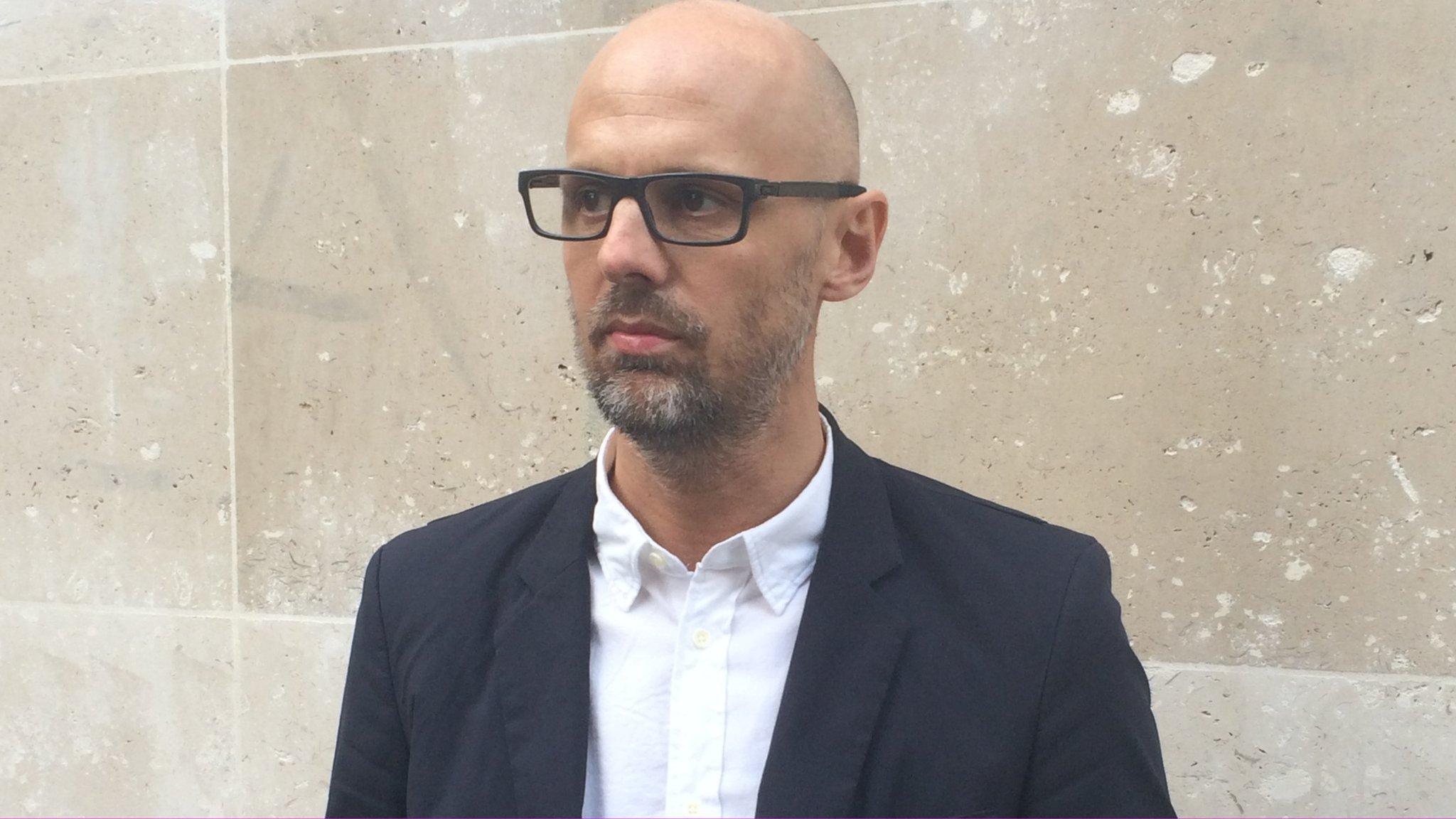
- Published11 January 2017
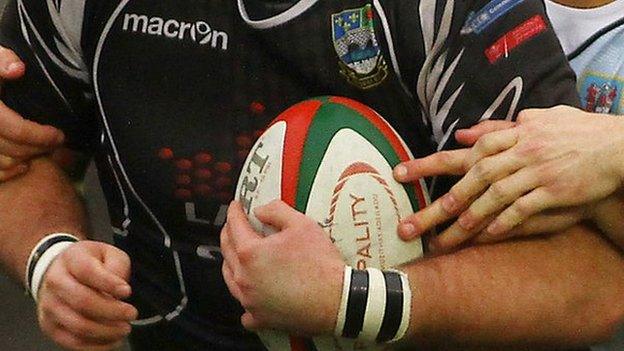
- Published4 October 2015
